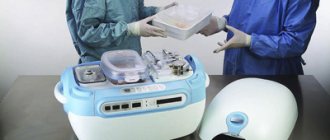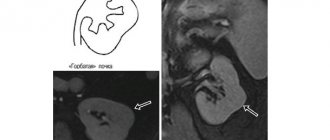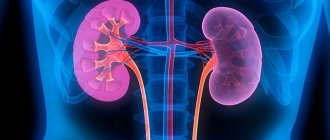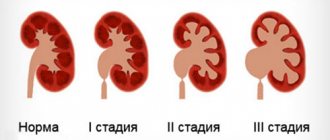Table of contents
- Causes of formation of calculi (stones) in the kidneys:
- Kidney support during exacerbation of urolithiasis (urolithiasis):
- Herbal infusions
- Recipe No. 1
- Recipe No. 2
- Recipe No. 3
- Recipe No. 4
- Recipe No. 5
- Recipe No. 6 (antispasmodic, analgesic for urolithiasis)
- Recipe No. 7
- Gymnastics
- Conclusion
Spring time is accompanied by an exacerbation of many diseases. People who are prone to forming kidney stones experience this in their own lives. Heaviness, discomfort, stabbing pain in the area of the kidneys and ureters, discomfort when urinating, pain - all this may indicate that urolithiasis has worsened. Naturally, severe pain is a reason to consult a doctor (generalist, urologist). Also, these signs can be symptoms of pyelonephritis, partly cystitis. If the doctor determines that this is a “spring rockfall” or cleansing the kidneys of sand, you can help the body with herbal medicine.
Unique properties of chamomile
Chamomile is rich in flavonoids, coumarins, fatty acids, minerals, valuable essential oils, choline, and salicylic acid. Its effect on the body is as follows:
- strengthening the immune system;
- relief of spasms and pain;
- reduction of inflammatory processes;
- stopping bleeding;
- normalization of intestinal microflora;
- suppression of the activity of pathogenic bacteria;
- excretion of excess fluid through urine and sweat;
- reducing the intensity of allergic reactions;
- improvement of psycho-emotional state;
- decrease in blood sugar levels.
Chamomile is often used for diseases of the kidneys and urinary tract (separately or as part of complex therapy).
2.What to expect after a kidney transplant?
You will remain in the hospital for 7 to 10 days after surgery. In some cases, it will take some time for the new kidney to start producing urine. Therefore, you may undergo dialysis (artificial blood purification) and be prescribed medications (diuretics) that will help your new kidney get rid of excess water and salt in the body.
After surgery, you will need to take medications to suppress your immune system. They are used to prevent the new kidney from being rejected. These medications must be taken for the rest of your life.
Your body will try to reject the new kidney for several weeks or even months after surgery. This phenomenon is called acute kidney rejection
and is observed in approximately a third of patients. Acute kidney transplant rejection is most often treated with immunosuppressive medications.
Chronic rejection
– on the contrary, the process of gradual, progressive deterioration of kidney function. It can be observed in the patient from months to several years after surgery. Scientists have not yet fully agreed on what causes chronic rejection of a transplanted kidney. Unfortunately, a cure for this type of rejection has not yet been found. Most patients are forced to attend dialysis or undergo a new donor kidney transplant.
Visit our Nephrology page
Use for kidney treatment
When used externally, chamomile has an antiseptic effect, and when used orally, it has an antimicrobial effect. Improvement in well-being is achieved due to the anti-inflammatory, hemostatic, astringent, and diuretic properties of the plant.
Chamomile is used for colic and kidney failure. Regular use of products based on it normalizes urinary function, reduces the activity of harmful microorganisms, relieves inflammation and pain. During therapy, sand and salts present in the kidneys are eliminated.
Sweating increases, which leads to a decrease in general intoxication of the body and improved well-being.
If necessary, chamomile can be used to treat other diseases of the genitourinary system, including cystitis and prostatitis. For therapy to be more effective, you need to adhere to a diet and follow your doctor’s recommendations. In severe cases, additional medications may be required.
Causes of formation of calculi (stones) in the kidneys:
- Infections that travel through the bloodstream to the kidneys. Staphylococcus, for example, changes the acidic reaction of urine to alkaline (bacterial conversion of urea into ammonium, which has an alkaline reaction). In this case, sediments of salts and urine colloids appear in the urine, from which stones are formed.
- Increased oxalate content in urine. The human intestine is inhabited by saprophytic bacteria that produce calcium oxalate (calcium oxalate). With the rapid proliferation of these bacteria and their vital activity, oxalaturia occurs. This can occur due to poor nutrition, consumption of canned food containing many toxic substances, and intestinal diseases.
- Anomalies and chronic kidney diseases.
- Lack of vitamins, in particular vitamin A (affects the mucous membrane of the urinary tract).
- Endocrine disorders (parathyroid, pancreas). The parathyroid glands regulate calcium metabolism; a complication of diabetes mellitus is metabolic disorders and kidney damage (nephropathy), which contribute to the formation of stones.
- Calcium from food is not absorbed. Calcium salts contained in food and calcined water are not absorbed by the body. These calcium salts form an insoluble complex with urine components and are deposited in the kidneys.
- Excessive consumption of protein, carbohydrate foods, fried and spicy foods. Insufficient consumption of fresh vegetables and fruits.
- Liver diseases. One of the functions of the liver is urea formation. Urea is formed during the breakdown of proteins. In case of liver diseases, the entire cycle of protein metabolism is affected, i.e. and excretion of urea by the kidneys.
- Stress leads to discolloiduria - a change in the functional activity of the kidney. Few protective colloids are formed by the renal elements, which normally impart solubilizing properties to urine within the urinary system. Prolonged and frequently repeated stress leads to stone formation.
- Colitis (inflammation in the large intestine) and dysbacteriosis are risk factors for the formation of stones in the right kidney. The large intestine on the right side has a thin wall; it is believed that toxins can diffuse into the kidney.
- Physical inactivity.
- Failure to comply with water and drinking regime.
Methods for preparing infusions and decoctions
You can prepare a remedy for treating kidneys using one of the following recipes:
- 2-3 tsp. chamomile pour 250 ml of hot boiled water, close the lid and leave for 3-4 hours. Strain the infusion and squeeze through cheesecloth. Take 100 ml twice or thrice a day. Before use, the product should be slightly warmed.
- 1 tbsp. l. flowers pour 250 ml of cold water. Leave for 8-12 hours, strain and squeeze out the cake. Divide the finished product into 2-3 servings. Consume throughout the day, regardless of meals.
- 2 tbsp. l. chamomile pour 500 ml of water. Boil for 7 minutes over low heat, then leave and strain. Add 1 tbsp to the prepared broth. l. honey, mix thoroughly. Drink 1/2 glass twice a day: in the morning on an empty stomach and before bed. The recommended duration of therapy is 10 days.
We recommend that you familiarize yourself with Sage, an assistant for menopause and hot flashes.
For pyelonephritis and cystitis, remedies prepared according to the following recipes will help:
- Pour 1 tbsp. l. inflorescences 1 glass of water, insist, strain. Take 3 times a day, 1 tbsp. l.
- Mix 2 tbsp. l. chamomile and 2 tbsp. l. dandelion root. Pour 500 ml of boiling water, leave, strain. Take 1/2 cup before each meal.
Another remedy that helps with cystitis is prepared from chamomile, knotweed, St. John's wort, blue cornflower and corn silk, taken in equal proportions. Take 1 tbsp. l. mixture, pour in 1.5 cups of boiling water, infuse for 60 minutes and strain. The finished infusion is divided into equal portions and taken after meals.
Kidney support during exacerbation of urolithiasis (urolithiasis):
- Elimination of the causes leading to the formation of stones (impact on what we can change): dietary adjustments (switching from pasta to vegetables, eating high-quality and healthy food), enriching the diet with vitamins, drug therapy for infections, using water filters with an anti-calcium component etc.
- Pain during the passage of stones and sand is eliminated with antispasmodics and warm baths.
- It is very useful to take the knee-elbow position for 20 minutes 2 times a day.
- The use of herbal medicine will significantly improve the condition during exacerbation of the disease.
Rules for using chamomile for the kidneys
To achieve a positive effect and avoid the development of side effects, when using chamomile you must follow the following rules:
- Any medicinal herbs (including chamomile) should be used when the first symptoms of the disease appear. At moderate and severe stages of the disease, inflammatory processes are active, so eliminating them will require additional help in the form of medicinal antibacterial agents. The sooner a person starts using herbs, the higher the likelihood that antibiotics will be avoided.
- During therapy you need to move from simple to complex. First, take decoctions and infusions prepared from chamomile flowers. If treatment does not bring the desired results, multicomponent preparations consisting of several ingredients are used.
- Treatment with folk remedies differs from traditional therapy using medications. You need to take herbs continuously for a long time (breaks between courses are required). To determine the timing of treatment, you should consult a doctor.
- Each patient’s body reacts differently to the same components. Before starting therapy, you need to make sure that there is no individual hypersensitivity or other contraindications. It is better to consult a doctor, because he will be able to competently assess the state of health and the severity of the disease.
- If the disease is acute and accompanied by severe symptoms, the use of herbal remedies should not become the basis of treatment. Refusal of traditional medications can lead to the progression of the disease to an advanced form and the development of complications. Sometimes only antibiotics can destroy pathogenic bacteria.
We recommend that you read: Why do you drink chamomile?
Herbal infusions
Consult your doctor before use!
Recipe No. 1
- Knotweed grass
- Strawberry leaf
- Lingonberry leaf
Take 1 tablespoon of each raw material and mix. Pour 1 tablespoon of the mixture into 1 glass of boiling water (200 ml), leave in a water bath in an enamel bowl for 30 minutes, then at room temperature for about an hour. Drink 1/2 cup warm 3 times a day (at the same time take 1 tablet of no-shpa). For convenience, you can brew it in a thermos with boiling water overnight, provided that the thermos inside is glass. A metal thermos cannot be used, because Lingonberry chemicals will precipitate upon contact with metal.
Action: strawberries and lingonberries have an antiseptic, bactericidal effect, lingonberries - anti-inflammatory for diseases of the urinary system, immunomodulator; knotweed - dissolves stones in urolithiasis.
Recipe No. 2
- Rose hips 1 part
- Sage herb 1 part
- Strawberry leaf 1 part
- Bearberry leaf (can be replaced with lingonberries) 2 parts
Mix. Take 1 tablespoon of the mixture, pour 200 ml of boiling water, leave for 30 minutes in a water bath, then 1 hour at room temperature. Drink 1/4 cup warm (the more often, the better). Brewing in a thermos is similar to the previous recipe.
Action: rosehip - diuretic, vitamin, choleretic; sage, bearberry, strawberry are antiseptics, sage has a phytoestrogenic effect.
Recipe No. 3
- Kidney tea (orthosiphon) herb 10 parts
- Bearberry (or lingonberry) leaf 10 parts
- Horsetail herb 10 parts
- Calendula flowers 15 parts
- Chamomile flowers 15 parts
- Plantain leaf 15 parts
You can use a teaspoon to dose the “parts”. Mix. Pour 1 tablespoon of the mixture into 250 ml of boiling water. Infusion is similar to previous recipes. Drink 1/4 cup warm 8 times a day.
Action: bearberry, orthosiphon - diuretic, antiseptic; chamomile - antispasmodic; plantain - analgesic, anti-inflammatory, antiseptic; horsetail dissolves stones, diuretic; calendula - diuretic, choleretic, vitamin, antiseptic, wound healing.
Recipe No. 4
- Pour 1 teaspoon of flax seed into 1 glass of water.
Boil. Drink 1/2 glass every 2 hours for 2 days.
The mixture is thick and can be diluted with water or sweet tea before drinking.
Action: diuretic, anti-inflammatory, restores metabolic processes, wound healing.
St. John's wort, calendula, mint, chamomile, yarrow, plantain, and celandine relieve severe pain.
Recipe No. 5
- Dill seed 1 part
- Chamomile flowers 1 part
- Calendula flowers 1 part
- Coltsfoot sheet 2 parts
Pour 1 tablespoon of the mixture into 200 ml of boiling water. Boil. Drink 1/4 glass 3-4 times a day before meals.
Action: dill and chamomile are antispasmodics, calendula and coltsfoot are antiseptics; calendula - vitamin, wound healing, choleretic, hepatoprotective.
Recipe No. 6 (antispasmodic, analgesic for urolithiasis)
- Chamomile flowers 1 part
- St. John's wort herb 1 part
- Plantain leaves 2 parts
- Mint herb 1 part
- Sage herb 1 part
Mix, pour 1 tablespoon of the mixture into 200 ml of boiling water, leave for 15 minutes in a water bath and 45 minutes at room temperature. Take 1/4 cup 5 times a day.
Action: chamomile - antispasmodic and antiseptic, St. John's wort - analgesic, sedative, antiseptic; plantain - analgesic, antiseptic, diuretic, hypotensive; mint - soothing, antispasmodic; sage - phytoestrogen, antiseptic.
Recipe No. 7
- Chamomile flowers 2 parts
- Calendula flowers 2 parts
- Plantain leaves 2 parts
- Yarrow herb 2 parts
- Sequences grass 1 part
Prepare and take in the same way as recipe No. 6.
Action: taken when the mucous membrane of the urinary tract is injured by stones and sand (this may be indicated by blood in the urine - hematuria and pain when urinating). The collection is good for cystalgia (severe pain when urinating).
Also, for urolithiasis, preparations containing astragalus wooliflora and barberry berries help.
Contraindications
If there are contraindications, chamomile should not be used, as it is dangerous for the body. These include:
- individual intolerance to the plant and the ingredients it contains;
- mental disorders;
- simultaneous use of medications incompatible with the plant;
- periods of breastfeeding, pregnancy;
- a strong increase in stomach acidity;
- severe disturbances in the functioning of the gastrointestinal tract (constant diarrhea).
You should not overuse chamomile, as this can lead to an overdose. This condition is accompanied by cough, irritability, allergic reactions and side effects from the central nervous system (headaches, lethargy, irritability, drowsiness).
3.Indications for surgery and how it works
During a kidney transplant, your diseased or dysfunctional kidney is replaced with a healthy donor kidney. Kidney transplantation is performed for chronic diseases (renal failure) that cannot be cured by any other method. You may not be able to have this surgery if you have an active infection, another life-threatening illness (such as cancer), or serious heart or lung disease.
How it works?
If you have severe chronic kidney disease and choose a transplant, you will live much longer than if you resort to dialysis alone.
As practice shows, kidney transplantation from a close relative (mother, father, brother or sister) is the most successful option. It is also worth noting that organ transplantation from a living donor is usually more successful than from a dead one.
About our clinic Chistye Prudy metro station Medintercom page!










